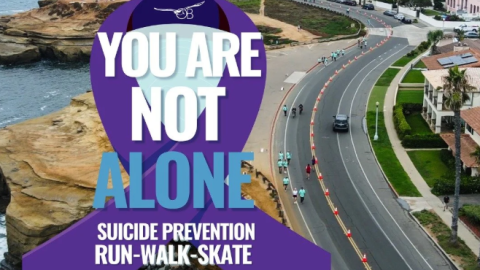
Lorie Hearn
Executive Director and Editor of inewsourceLorie Hearn is the executive director and editor of inewsource. She founded inewsource (formerly called the Watchdog Institute) in the summer of 2009, following a successful 35-year reporting and editing career in newspapers. She retired from The San Diego Union-Tribune, where she had been a reporter, Metro Editor and finally the senior editor for Metro and Watchdog Journalism. In addition to department oversight, Hearn personally managed a four-person watchdog team, composed of two data specialists and two investigative reporters. Hearn was a Nieman Foundation fellow at Harvard University in 1994-95. She focused on juvenile justice and drug control policy, a natural course to follow her years as a courts and legal affairs reporter at the San Diego Union and then the Union-Tribune. Hearn became Metro Editor in 1999 and oversaw regional and city news coverage, which included the city of San Diego’s financial debacle and near bankruptcy. Reporters and editors on Metro during her tenure were part of the Pulitzer Prize-winning stories that exposed Congressman Randy “Duke” Cunningham and led to his imprisonment. Hearn began her journalism career as a reporter for the Bucks County Courier Times, a small daily outside of Philadelphia, shortly after graduating from the University of Delaware in 1974. During the next two decades, she moved through countless beats at five newspapers on both coasts. High-profile coverage included the historic state Supreme Court election in 1986, when three sitting justices were ousted from the bench, and the 1992 execution of Robert Alton Harris. That gas chamber execution was the first time the death penalty was carried out in California in 25 years. In her nine years as Metro Editor at the Union-Tribune, Hearn made watchdog reporting a priority. Her reporters produced award-winning investigations covering large and small local governments. The depth and breadth of their public service work was most evident in coverage of the wildfires of 2003 and then 2007, when more than half a million people were evacuated from their homes. Contact Lorie at loriehearn@inewsource.org.
-
This week a new word made its public debut. With an increase in attacks on health care facilities and personnel, the goal of this coinage is to spark outrage and outcry. But the reaction is mixed.
-
Haley Cohen Gilliland's A Flower Traveled in My Blood tells the story of a group of grandmothers who spent decades searching for their stolen grandchildren during and after Argentina's "Dirty War."
-
Bobbys were inescapable in music in the '50s and '60s: Bobby Sherman, Bobby Rydell, Bobby Darin and more. NPR critic Bob Mondello looks back to an era when everyone seemed to share his name.
-
Plus: physical fitness, Confederate statues, robot overlords and weird zoo requests.
-
The National Crime Prevention Council is questioning federal cuts to McGruff the Crime Dog's campaign to sniff out fake pills. The group says McGruff's work that started in 1980 isn't over.
-
Economists say that what happens in Vegas matters nationally because it often reflects broader trends on consumer confidence and the overall health of the U.S. economy.
- San Diego Navy doctor fired after right-wing activists find pronouns on social media
- People are losing jobs due to social media posts about Charlie Kirk
- Charlie Kirk's widow: 'You have no idea what you have just unleashed'
- From Old Town to Escondido, how San Diegans are marking Mexico’s Independence Day this weekend
- Fletcher breaks silence, rules out return to public office after lawsuit dismissal










